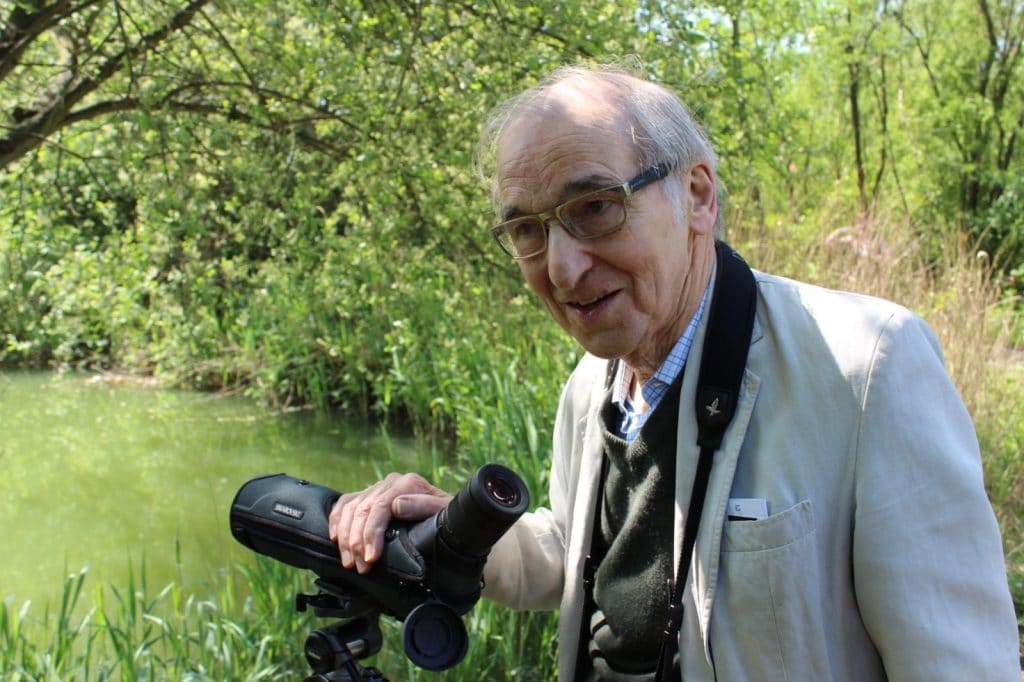In Memoriam - John Wilkins
Image: catholicherald.co.uk
BERNARD TREACY, O.P - Editor of Doctrine & Life Journal
JOHN WILKINS, former editor of The Tablet, who died aged 85 on Tuesday 26 April, was ‘a Vatican II Catholic’. This was true, firstly, in a personal sense: the last step in his religious journey (he was an Anglican who had been brought up Methodist) was occasioned by the calling and the work of Vatican II. This event, he would say, quietly, was what prompted him to become a Catholic.
What Vatican II set out to bring about in the Church remained the guiding light of his life and his work. John left the BBC World Service where, for 10 years he had been a features writer and presenter, to succeed Tom Burns as editor of The Tablet in 1982. By that time the optimism of the post-conciliar period was waning as the vigorous papal style of Pope John Paul II was tending to eclipse what the Council had taught and had sought to achieve. It was a time when commenting on Church matters was becoming complicated by a pervading sense that one needed to be cautious how a statement or a comment would be viewed in Rome.
That John Wilkins was not cowed in this atmosphere was because, as Hugo Young said of him on his retirement in 2003, he was ‘a friend of the Church but not its slave, an ally but not one subornable into believing that criticism amounts to disloyalty.’ Brendan Walsh, present editor of The Tablet, drew attention to the same quality when he commented, after John’s death was announced: ‘John Wilkins gave us an unsurpassed lesson in how it is possible to combine brilliant, independent journalism with a deep love of the Church.’ The policies which John Wilkins followed, succeeded in almost tripling the
readership of The Tablet. This came about by his easing The Tablet out of a Catholic and even a religious redoubt, widening the arena of its concerns. Religion and theology were never abandoned while the paper addressed questions of the day, drawing in new writers and attracting a variety of readers whose interests gave the paper an international presence.
That analysis of John Wilkins’ achievement comes from a tribute, written when John retired, by Hugo Young of The Guardian. He saw the first great quality John Wilkins brought to the paper as ‘an almost fanatical industry’. This involved caring about every word that appeared in every issue. The tribute went on: ‘Day and night, seven days a week, he toiled over the commissioning, the re-writing, the sub-editing, the correcting and – very necessary – the rejecting of what next week’s paper might contain.’ Anyone who ever wrote for The Tablet during John’s editorship will have experienced what Hugo Young described – the telephone call, perhaps in the evening or at a week-end, inquiring whether it would not be clearer to re-phrase this line or that.
Retirement did not put an end to John Wilkins’ commitment to researching and writing. He became a respected contributor of deeply researched long pieces in Commonweal and, on occasion, in this journal. Such pieces were always marked by reliable research and impeccable clarity of expression.
Visits to London will be all the duller now that there can be no more morning coffees with John. Such leisurely gentle encounters were possible only after his retirement, when he was freed of the ‘almost fanatical industry’ that made his editorship so successful. In his gentle way, John was a deeply attentive listener and generous in sharing the range of information and insight he gained from conversations among his wide circle of friends. One of John’s great enthusiasms was bird-watching, a pursuit which requires both attentiveness and stillness. One can gain a sense of his gentle humour from a phrase in an article he wrote two years ago on bird-watching where he referred to sparrows as ‘the spivs of the bird world, dressed in spangled purple.’
In paradisum deducant eum angeli.


